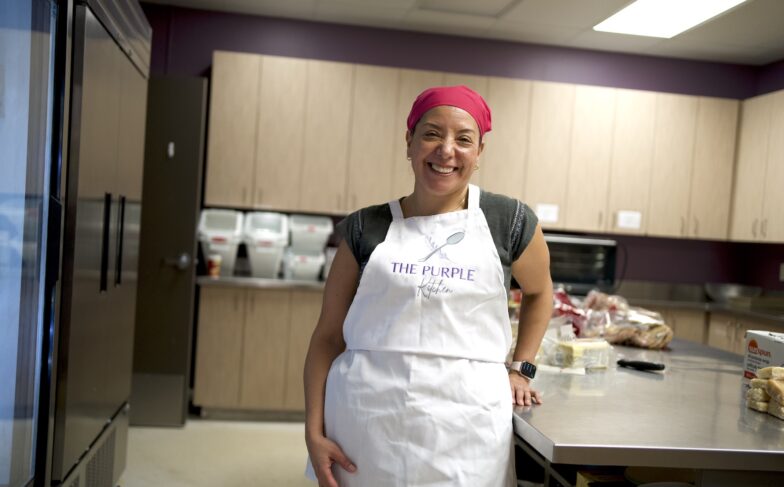When Angela Taylor first learns that you are neurodivergent or have a neurodivergent colleague or staff member on your team, the first thing she says is: congratulations!
“There are so many diverse people in the workplace,” says Taylor. “Learning about neurodiversity and embracing it is about learning to embrace all of us as humans.”
Taylor is the founder of Supporting Community Together—a Winnipeg consultancy offering training and support to organizations and businesses looking to foster an environment of neurodivergence understanding and growth. She has over 25 years of experience with youth with various neurological differences, including trauma and autism, and is currently completing her PhD in Education at the University of Manitoba with a focus on effective care as defined by the neurodivergent.
She has won numerous awards for her work, including the Manitoba Heroes Award (2019) and the CTV Mental Health Champion Award (2020).
On October 9, Taylor will share her extensive expertise with staff and leaders of nonprofit organizations when she hosts Neurodiversity in the Workplace: A Guide for Helping Professions.
The virtual session—being offered by United Way Winnipeg’s Learning Centre to staff from any local not-for-profit organization—is designed for anyone working in helping professions who wants to support neurodivergent colleagues more effectively.
Participants will learn about fostering inclusive environments for neurodivergent colleagues and practical strategies for accommodations, collaboration, and conflict resolution to help create accessible and affirming workspaces.
It’s one of a series of workshops facilitated by the Learning Centre over the next several months.
“(Ask yourself), ‘What would it look like to have compassion for those parts of … my colleagues? That feels safer—and that safety allows us to grow.”
Taylor is multiply-neurodivergent herself and said she “fell in love” with neurodivergence when her kids (she has four) were experiencing some of the struggles that can often arise before knowledge, acceptance, and understanding.
“So many of us just go through life thinking we’re broken,” she said. “But what if that’s not it?
What if the areas we’re struggling with … are actually invitations for exploration?”
According to the Centre for ADHD Awareness, Canada, approximately two million Canadians (about 5%) have some sort of neurodiversity. In the working world, Taylor said studies show that as much as 20% of the current workforce is neurodivergent.
Neurodivergent thinkers bring unique perspectives, creativity, and problem-solving skills that can strengthen any team, said Taylor. In today’s nonprofit landscape, where innovation, empathy, and impact drive success, she said embracing neurodiverse talent is not just inclusive—it’s essential.
“Leaders need to be open and curious and be hungry for information,” said Taylor. “As a community carer, what are we seeing, how do we make sense of it, what does it feel like for the individual, and what can we do?
“(Ask yourself), ‘What would it look like to have compassion for those parts of … my colleagues? That feels safer—and that safety allows us to grow.”
Taylor points to examples like noise cancelling headphones, easy to read clocks, flexible breaks, and encouragement of movement during meetings as some simple accommodations that can affirm a workplace as inclusive for neurodivergent employees.
Ultimately, Taylor says true success through accommodation for her means seeing neurodiversity education, acceptance, and celebration as part of an organization’s core training and overall culture.
“It’s hard to keep amazing staff,” she said. “That’s what we want—we want to invest in them, we want good people to stay.”
Throughout the year, United Way Winnipeg’s Learning Centre hosts a selection of facilitated workshops and seminars on a variety of topics, from board governance and leadership development to human resources, government relations, and more. United Way Winnipeg partners with subject matter experts in each field, who share timely, relevant knowledge on key nonprofit management practices.
The sessions are available for staff from any local not-for-profit organization and are not limited to United Way Winnipeg’s network of agency partners. Learning Centre courses are offered at affordable rates, too—making them a worthwhile investment for agencies looking to increase their capacity.
Neurodiversity in the Workplace: A Guide for Helping Professions runs from 9 a.m. to 12 p.m. on Thursday, October 9.
Register today!





